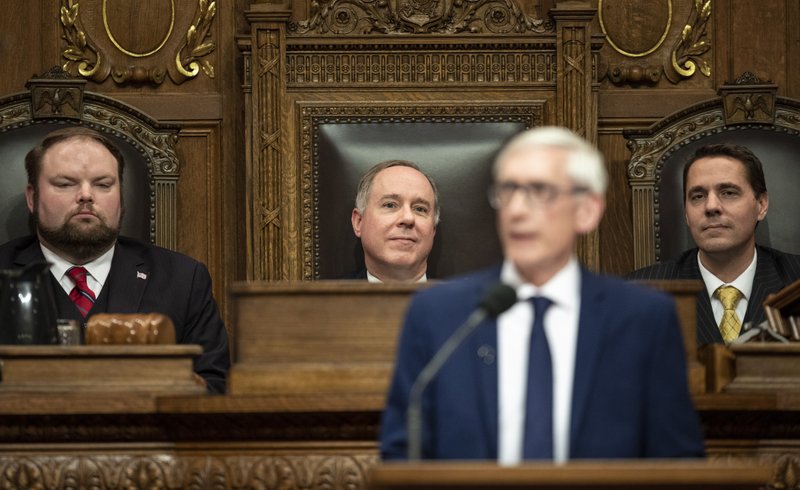Coronavirus
Wisconsin hospital leader urges Evers, Republicans to unite

MADISON, Wis. (AP) — Faced with hospitals running out of beds and staff to treat the rising number of COVID-19 patients, the leader of the Wisconsin Hospital Association pleaded Thursday with Democratic Gov. Tony Evers and state legislative leaders to come together immediately to fight the virus before the current crisis becomes a catastrophe.
The governor and lawmakers should take steps to slow the spread of COVID-19, address immediate hospital bed shortages and staffing needs, create alternative care facilities and expand contact tracing, Hospital Association President Eric Borgerding wrote in the letter.
“Wisconsin faces a public health crisis the likes of which we have not experienced in three generations,” Borgerding said. “A crisis of this magnitude caused by a virus that is so clearly raging across all of Wisconsin demands a unified and substantial response. Your joint leadership is critical to improve this situation, allowing everyone to get back to our way of life sooner.”
Republican legislative leaders who were sent the letter — Assembly Speaker Robin Vos and Senate Majority Leader Devin LeMahieu — did not immediately return messages seeking comment. Evers’ spokeswoman reacted by referring to Evers’ previous comments that mirrored the exhortation from Borgerding for policy makers to come together.
Evers earlier this week proposed a roughly half-billion dollar package of ideas to address the virus. Vos responded by outlining broad ideas Republicans support, but not specific legislation. Evers and Republican leaders were expected to meet Friday to discuss ideas, their first such meeting in months.
The Legislature hasn’t met since April when it approved a COVID-19 relief bill. Republicans have fought Evers in court over his attempts to curb the virus spread, including his “safer at home” order that was struck down by the conservative-controlled Wisconsin Supreme Court in May and his current mask mandate that the court heard arguments over on Monday.
As of Thursday, there were 2,104 coronavirus patients hospitalized across the state, down slightly from an all-time high recorded Tuesday.
There were 83 more deaths and 6,635 new positive cases reported by the state Department of Health Services on Thursday. That brings the total number of cases to nearly 338,500 and deaths to 2,876. There were 1,606 new cases per 100,000 people in Wisconsin over the past two weeks, which ranks fifth in the country for new cases per capita, according to data from Johns Hopkins.
In a sign of how bad the situation is, one of central Wisconsin’s largest health systems is planning to send some coronavirus patients home in order to make sure there are enough hospital beds for the “sickest of the sick.”
Aspirus CEO Matt Heywood said Wednesday that facilities at its Wausau hospital are nearly full and staff resources are strained, Wisconsin Public Radio reported. Aspirus Wausau Hospital is the latest Wisconsin hospital to reach capacity as patient counts spike in Wisconsin.
Earlier this month, Mayo Clinic Health System in western Wisconsin announced that it would suspend elective medical procedures to try to manage its hospital capacities. And earlier this week, Children’s Hospital of Wisconsin said it would accept non-COVID-19 adult patients to take pressure off other Milwaukee area hospitals.
“We must do much better as a state and with greater urgency,” Borgerding wrote to Evers and legislative leaders.
He called for instituting a statewide mask policy; affirming the authority of counties and municipalities to adopt their own strategies; passing a version of the state chamber of commerce’s “back to business” plan; passing the Evers proposal to provide hospitals with $105 million to increase hospital capacity and workers; and opening more alternative care facilities across the state so people don’t have to travel to the only one outside of Milwaukee.
He also called for maintaining and expanding testing capacity and contact tracing and permanently allow out-of-state health care license holders to work in Wisconsin. The current exemption is scheduled to end on Jan. 20, Borgerding said.

